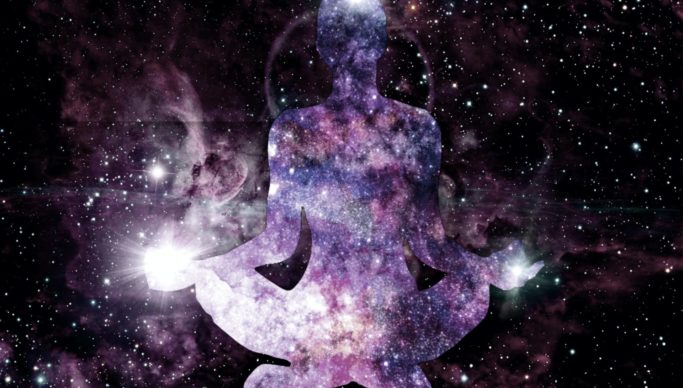
A Glimpse Into America’s Post-Christian Spiritual Landscape
- By Kelly Frazier --
- 26 Oct 2023 --
As Americans become less affiliated with formal religion, the landscape of spirituality in the country is undergoing some peculiar transformations, according to speakers at a recent event hosted by the Institute for Human Ecology (IHE) at the Catholic University of America, a research institution based in Washington, D.C.
Titled “The Weird Future of American Religion” and billed as “a lively discussion on the post-Christian quest for spiritual experience: from pagan revivals to UFO obsessions, ghost hunts to hallucinogens, and the Christian response,” the October 18 event was moderated by New York Times columnist Ross Douthat, who frequently writes about religion and is an IHE fellow.
Panelists included Tara Isabella Burton, a noted author whose books include Strange Rites: New Religions For a Godless World; Susannah Black Roberts, a senior editor at Plough Quarterly, a magazine of narratives, concepts, and cultural content aimed at instilling faith and motivating individuals to take action; and Monsignor Stephen Rossetti, a Catholic priest and licensed psychologist who is chief exorcist at the Archdiocese of Washington.
“There is a sense that we are in a so-called secular age,” said Burton in reply to an invitation by Douthat to describe America’s “de-Christianizing landscape.” Religious affiliation continues to wane, along with lowered interest and trust in “all kinds of institutions—ecclesiastical, political journalistic,” pointed out Burton, adding that about a quarter of all Americans and 36 percent of young millennials and Generation Z members are religiously unaffiliated.
And yet, observed Burton, despite the overt signs of religion’s decline, about 72 percent (what the Pew Research Center described as a “solid majority” in a September 2022 report) of self-reported religious “nones”—a social category that includes atheists and agnostics—say they believe in a higher power.
Further, about 20 percent of nones believe in the “God of the Bible,” as Burton put it, adding: “So something clearly a little bit more interesting—and weird—than straightforward secularism is going on,”
In her 2020 book, Strange Rites, Burton explained, she examined the various ways in which an “eclectic spiritual hunger” is being expressed in American society.
“People are finding the tenets or the building blocks of religious life [by] remixing religion,” she said, referring to “the idea that you can get your ritual from Place A and your sense of meaning from Place B, your sense of community from Place C, and you can mix and match a little bit of yoga here, a little of sage cleansing there and still show up to church for Christmas Eve.”
Asked to offer his understanding of how his work informs what Douthat described as “America’s post-Christian spiritual landscape,” Monsignor Rossetti replied that he has been an exorcist for the past 17 or 19 years, and that the first 12 of them had been “very quiet” for his ministry in terms of public interest, although he dealt with “plenty of cases.”
“And then, all of a sudden we became the flavor of the month,” he said, adding: “It’s like, everyone’s into it.” He recounted a series of recent events, one of which involved a woman who had become involved in witchcraft during the COVID-19 pandemic. She described experiencing phenomena such as objects moving through the air and doors slamming loudly, resembling scenes from a poorly made movie, as Rossetti put it.
The priest mentioned that the woman had an aversion to attending church and that she experienced feelings of nausea and intense anger, which she attributed to a growing sense of demonic influence.
Eventually, her unsettling sensations led her to seek solace through confession, and she signed up for Rossetti’s online once-a-month “deliverance” sessions. “We had one last night or the night before last,” recalled the exorcist, adding that 15,000 people signed up for the event.
“There is something so distinctly 19th century about our present moment perhaps, precisely in this kind of tension between an interest in the spiritual or the magical … power of the will and its role in this kind of wider question of what does it mean to live a life in a world that may or may not be enchanted—and a hunger for that world to be enchanted,” Burton said.
“I think there is a similar kind of tension happening now that we might be able to characterize as an interest in the occult, and more broadly in spiritual forces beyond institutional religion as being indicative of an incredibly genuine hunger for something tangible, for something real, something enchanted,” she added.
“I do believe that … we do all have this spiritual hunger, so when you throw out Christianity, you’re going to be looking for something,” Rossetti argued. “I think people do have real, natural experiences and quasi-supernatural experiences that can lead us into a deeper community with the Lord,” he added. “People often say, ‘I don’t go to church because I find God in nature.’ Actually, that’s a good thing—I wish they went to church, too.”


















